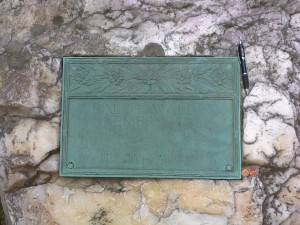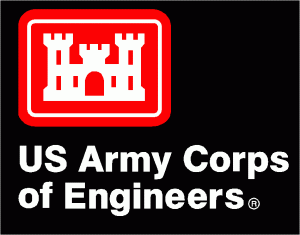
“It is very odd that Nature should be so unscrupulous. She is no saint . . .” ~ Ralph Waldo Emerson, 1803 – 1882
Nature does not discriminate. She does not care if you are a polluter or a tree hugger, if you live in a mansion or a shack on the coast; when a dam is overtopped or a coastal storm hits, it affects everyone in Nature’s path. People of different economic statuses can be affected differently, yes, but that is humans’ doing and an argument for another blog post.
Nature may be unscrupulous, but engineers and scientists have developed ways to model and attempt to predict Her next step.
That is one of the jobs of the United States Army Corps of Engineers.
My path to Bard CEP and the USACE
After graduating with a B.S. in Environmental Engineering, I still wasn’t sure of exactly how I wanted to protect people and the planet. I did know the issue was more complicated than constructing predictive models. I chose to get my M.S. in Environmental Policy at Bard Center for Environmental Policy (CEP) because of its interdisciplinary and systems-level approach to solving environmental problems.
The first year at Bard is intensive and focuses on gaining skills and learning methods in statistics, law, policy, economics, science, and communications. The demanding first year allows students to fulfill the program requirement of a four-to-six month extended internship that occurs during the second year of the program.
For my internship I was given the opportunity to work with the United States Army Corps of Engineers (USACE), New England District.

What exactly does the Army Corps do?
That’s a great question. Many people are unaware of the answer.
The stated mission of the Corps is to “deliver vital public and military engineering services; partnering in peace and war to strengthen our Nation’s security, energize the economy and reduce risks from disasters.”
In short, the USACE builds and maintains infrastructure to strengthen America’s security. The USACE is fondly known as the nation’s environmental engineer. Some of the things it does include:
- environmental remediation
- flood risk management
- natural resource management
- shoreline protection
- navigation improvements and maintenance
- disaster and emergency assistance
- regulatory administration
- engineering and construction management support to other agencies
I’ve created the simplified chart below to outline the small part of the organization where I’m currently working within the Army Corps; it’s just as much for my own benefit as it is for yours.

My position at the USACE
I am an Economic Trainee through the Pathways Internship Program at the New England District in Concord, Massachusetts. I work with economists, biologists, ecologists, and archaeologists in the Economics and Cultural Resources Section of the Engineering/ Planning Division.
The projects I focus on protect people, the environment, and help the economy. Some of them include:
- levee screenings
- dam flood risk analyses
- navigation projects
The navigation projects I have worked on involve analyzing the benefits of constructing breakwaters to protect small fishing harbors and of deepening and widening channels in major ports. I work on quantifying the National Economic Benefit a project will have through reduced damages, increased efficiencies, and decreased travel and time costs.
For the levee screenings and dam analyses, I look at the number of people at risk if the flood control system is overtopped or breached and the economic damages to buildings that are also impacted. I use programs such as ArcGIS and the Corps’ Hydrologic Engineering Center’s Flood Impact Analysis program to determine where people and critical infrastructure are in relation to rising waters.
The projects and problems that the USACE deal with are interesting and diverse. All of these projects have required the critical thinking and problem solving skills that I have been building up throughout my schooling as an engineering undergraduate and policy graduate student. The statistics, communications, science, hydrology, policy, and of course economics skills I have learned at Bard CEP have all been put to use at my internship.
The interdisciplinary nature of Bard CEP and my internship at the Army Corps is exactly what I love about both of these experiences. I am enthusiastic about further contributing to the protection of people, the economy, and the environment by working with the USACE in the coming months.
